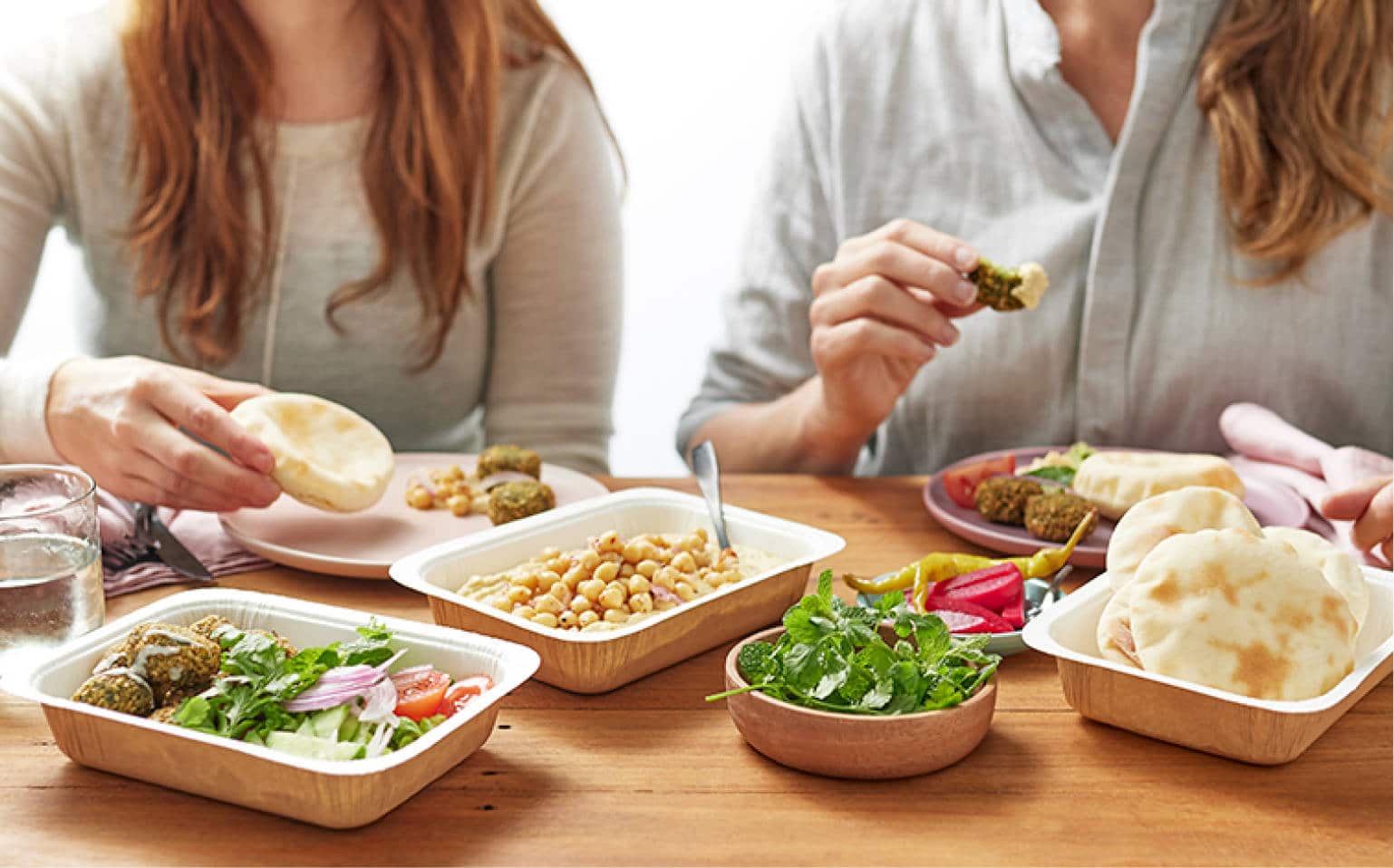
CERTIFIED COMPOSTABLE
Australian made and certified compostable, DualPakECO® is a dual ovenable, pressed paperboard food tray. DualPakECO trays are coated with ecovio ® by BASF, a food safe contact, compostable biopolymer coating. ecovio provides excellent barrier properties against liquids, aromas and oils.
DualPakECO is both ovenable and microwavable and can be chilled or frozen.
Once used, it can be composted in commercial composting or at home while still containing food residue or can be rinsed and recycled.
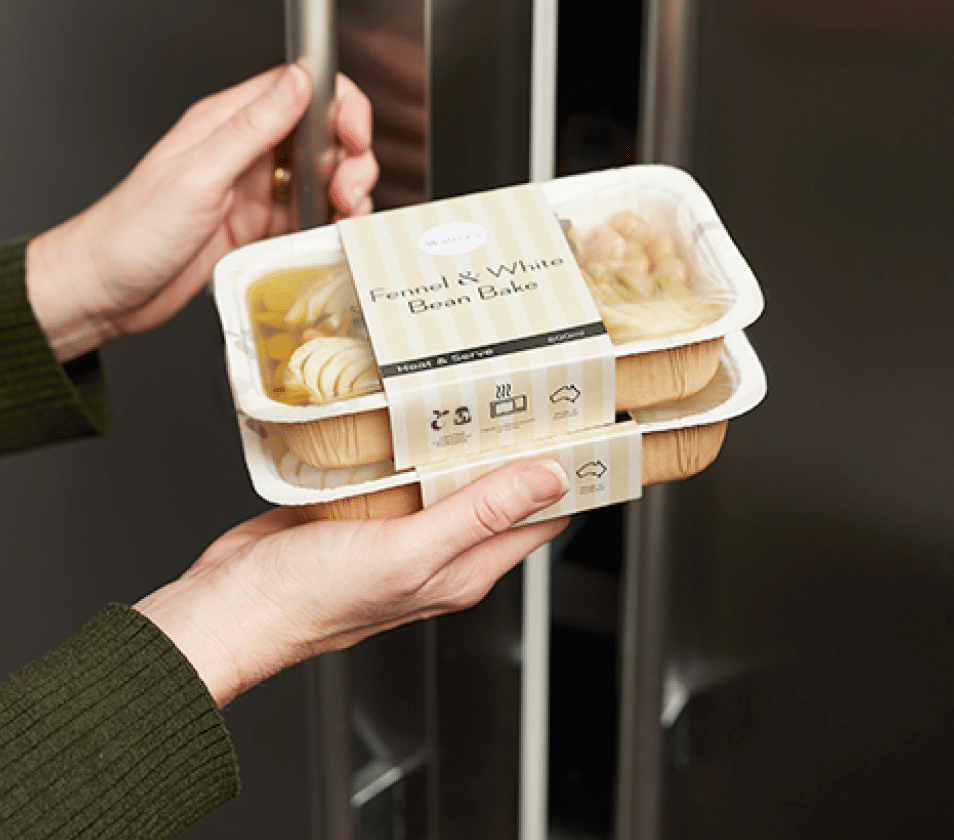
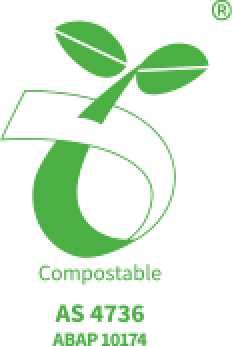
CERTIFIED COMMERCIALLY
COMPOSTABLE BY
THE AUSTRALASIAN
BIOPLASTICS ASSOCIATION
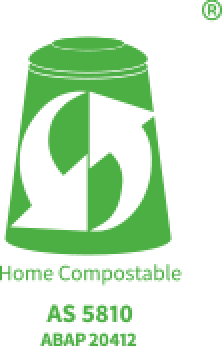
CERTIFIED HOME
COMPOSTABLE BY
THE AUSTRALASIAN
BIOPLASTICS ASSOCIATION
SUSTAINABLE ALTERNATIVE
DualPakECO pressed paperboard is made from renewable resources and is compostable and recyclable, The board is lightweight yet rigid enough for in-line production facilities and offers secure sealing across a variety of film substrates and machinery. The paperboard can be easily formed and allows for custom colour and printing inside and out.
- Certified to Australian standard AS4736-2006
- Certified commercially and home compostable by the Australasian Bioplastics Association
- Completely biodegrade in both commercial and home
composting systems

Ovenable
Microwaveable
Freezable
Heat Sealable
Customisable
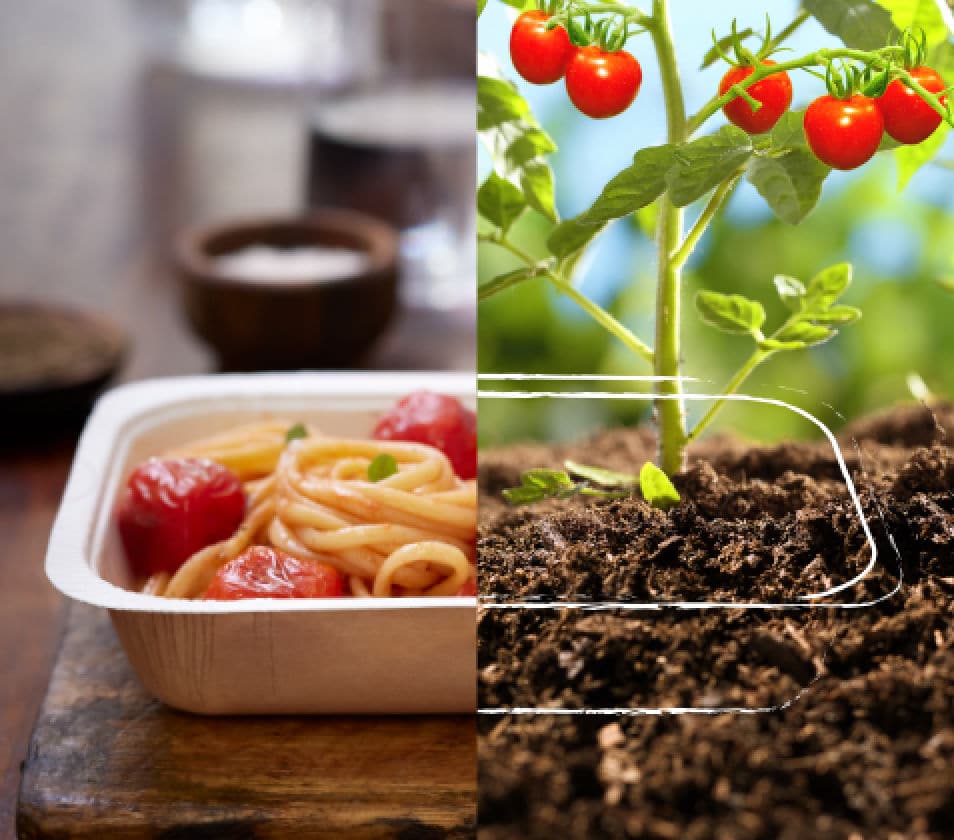
CERTIFIED COMPOSTABLE
Composting is an integral part of a circular economy where waste can be turned into a valuable resource rather than be disposed of in landfill. DualPakECO trays are certified commercially and home compostable by the Australian Bioplastics Association.
As more communities introduce source separation systems for diverting food waste from landfill, having certified compostable products will give consumers and organics recyclers (commercial composting facilities), the assurance that the products will completely biodegrade.
Certification and the use of certified compostable logos aim to ensure that these products and materials are separated by consumers and commercial premises easily from other recyclables and placed in the appropriate stream and diverted from landfill.
Why Composting
The National Packaging targets, to make all packaging recyclable, reusable or compostable by 2025 has increased interest in compostable products. BASF has been researching compostable and biodegradable polymers to support the development of certified compostable packaging for more than 25 years.
In Australia, commercial composting is represented by the Australian Organics Recycling Association (AORA).
AORA works with stakeholders to facilitate the conditions through which surplus organic material can be sustainably and cost-effectively recycled. AORA works to advocate the benefits of diverting packaging from landfill, with a vision to increase the rate of organics recycling throughout Australia.
Organics recycling closes the loop on food and other organic wastes and ultimately returns them to food production through the soil.
45%
OF CONSUMERS ARE
WILLING TO PAY MORE FOR
SUSTAINABLE PACKAGING